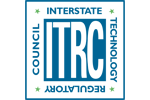 |
|
Integrated Site CharacterizationandCharacterization and Remediation of Fractured Rock:an ITRC Training Program
Tuesday, October 15, 2019 The Engineers Club of St. Louis $60 registration fee Presented by In conjunction with
The Missouri Waste Control Coalition is proud to bring the Characterization and Remediation in Fractured Rock Team of ITRC to St. Louis, MO for this seminar program. This two part program, Integrated Site Characterization and Tools Section and Characterization and Remediation of Fractured Rock is presented by nationally recognized state and industry leaders in project management, remediation, geology, and hydrogeology. Integrated Site Characterization and Tools Selection (morning session) Sites contaminated with NAPLs present significant environmental challenges and have proved recalcitrant to remediation. This can lead to remedial efforts that do not achieve cleanup goals even with the expenditure of significant amounts of time and money while still resulting in substantial risk remaining. Common site challenges leading to an unsatisfactory remedy generally fall into three categories: o Incomplete understanding of NAPL sites The Integrated Site Characterization module will address the following topics:
Upon completion of this portion of the seminar the participants should understand the current state of the practice regarding the following basic aspects of Integrated Site Characterization and some of the tools used to develop a better understanding of site conditions including: 1. Understand Conceptual Site Model (CSM) for a typical NAPL Dissolved phase plume site 2. Understand the fate and transport of NAPLs in the subsurface 3. Understand the concepts of an Integrated Site Characterization strategy 4. Present existing and new tools and techniques that can be used to improve/conduct site characterizations using the Integrated Site Characterization strategyCharacterization and Remediation of Fractured Rock (afternoon session)
Chemical contamination of the soil and groundwater frequently impacts the native rock formation underlying a site. Because of the location and type of rock found in Missouri and the surrounding states in the Midwest, this can have a widespread impact on human health and the environment far removed from the original site impacted by the release. Fractured rock sites have often been considered too complex to be remediated, so site managers often default to simply containing the contamination. This program provides a high-level introduction to the unique puzzle faced when investigating and remediating fractured rock sites. With the new strategies and technologies presented in this program, fractured bedrock challenges that may have prevented site remediation in the past are now manageable. The program begins with a general discussion of fractured rock characteristics and a comparison of the conceptual site models typically associated with fractured rock and porous media. The program further introduces the parameters necessary for developing a fractured rock conceptual site model and stresses the need for an experienced multidisciplinary team to address the many challenges typically found at these sites. This program details specific steps in solving the puzzle of fractured rock contaminant fate and transport, including:
By participating in this program, you should learn to:
Case studies of successful fractured rock remediation are presented to provide examples of how fractured rock sites can be evaluated and available tools applied to characterization and remediation. Program participants are encouraged to view and download the associated ITRC guidance, Characterization and Remediation of Fractured Rock prior to attending the program. REGISTRATION Registration fee is $60 and includes the seminar, any materials, breakfast, breaks and lunch. REGISTER HERE |
AGENDA 8:30 am Registration, continental breakfast 9:00 am Seminar begins 12:00 pm Lunch break (provided on location) 12:30 pm Seminar continues 3:30 pm Seminar ends INSTRUCTORS
| HOTELS There are several hotels within close proximity of the Engineers' Club: Parkway Hotel Holiday Inn Express St. Louis Central West End The Chase Park Plaza Royal Sonesta |
What Is the ITRC? The Interstate Technology and Regulatory Council (ITRC) is a public-private coalition working to reduce barriers to the use of innovative air, water, waste, and remediation technologies and processes. ITRC produces documents and training that broaden and deepen technical knowledge and expedite quality regulatory decision-making, all while protecting human health and the environment. ITRC achieves its mission through its Teams, which are composed of environmental professionals, including state and federal environmental regulators, federal agency representatives, industry experts, community stakeholders, and academia. With public and private sector members from all 50 states and the District of Columbia, ITRC truly provides a national perspective. |

